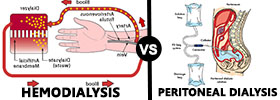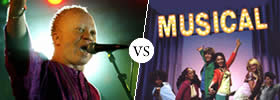Difference between Oral Communication and Written Communication
Key Difference: Oral and written communications are both major forms of communication. Communicating by word of mouth is termed as oral communication. Written communication involves writing/drawing symbols in order to communicate.
 Oral communication is the most widely used form of communication in the world. Humans are known to have communicated throughout the centuries of civilization, by using this method of communication. Oral communication is also one of the key factors that differentiates humans from other creatures, and entitles them to the claim of being the most intelligent species on earth.
Oral communication is the most widely used form of communication in the world. Humans are known to have communicated throughout the centuries of civilization, by using this method of communication. Oral communication is also one of the key factors that differentiates humans from other creatures, and entitles them to the claim of being the most intelligent species on earth.
One can understand oral communication simply as a verbally spoken conversation. It is the routine words and sentences that we use in conveying our feelings, desires, emotions, etc. to the people around us. Oral communication as a term may refer to two individuals participating in a conversation, such as a face-to-face chat, discussion, etc. Or, it could mean a group of people talking amongst themselves, like a meeting, a convention, etc. Oral communication may also mean an individual communicating to a large audience, as it happens in a speech, or a public presentation. Apart from voicing out one’s feelings and emotions, oral communication is also largely influenced by body language. Appearing trivial in nature, things such as body gait, posture, eye contact, etc. can influence an oral conversation as much as speaking the right words in the right manner does.
 Written communication has been prevalent on earth since the advent of pictographs. Pictograph was a method of communication that involved drawing symbols or pictures on cave walls or flat surfaces, so that people could observe them and grasp the message conveyed through it. Writing basically functions on this very premise, except that we now use alphabets, numbers, punctuations, etc. to communicate with the readers. Written communication has evolved from being understood as a tool to communicate using pen and paper. Writing now implies to digital mediums of communication as well, such as emails, text messages, chatting on the web, etc.
Written communication has been prevalent on earth since the advent of pictographs. Pictograph was a method of communication that involved drawing symbols or pictures on cave walls or flat surfaces, so that people could observe them and grasp the message conveyed through it. Writing basically functions on this very premise, except that we now use alphabets, numbers, punctuations, etc. to communicate with the readers. Written communication has evolved from being understood as a tool to communicate using pen and paper. Writing now implies to digital mediums of communication as well, such as emails, text messages, chatting on the web, etc.
Written communication is considered as the preferred form of communication, when it comes to government undertakings, official work, formal agreements, etc. This is because written communication is more suitable to be effectively implemented in such scenarios, than oral communication. For instance, written communication provides the facility of recording any piece of communication, as it is always in written form, while oral communication cannot. In this day and age, oral communication can also be recorded using the various means of technology, but oral communication is not always recorded. Whereas, written communication is always in a recorded form. This is the reason why written communication holds an edge over oral communication in legal and formal circumstances. Written communication not only enables a person to relive and remember a conversation exactly, but also to present it as evidence, in case he/she is in a spot of bother.
However, the fact which remains is that both oral and written forms of communication are indispensable to the human society in its day to day life.
Comparison between Oral and Written Communication:
|
|
Oral Communication |
Written Communication |
|
Meaning |
Communicating by word of mouth is termed as oral communication. |
Written communication involves writing/drawing symbols in order to communicate. |
|
Permanency |
Oral communication can be altered or corrected after saying. |
Once written, it is recorded. So the communication either has to be erased or written anew. |
|
Applicability |
Oral communication is mostly used for immediate confrontations. |
Written communication is usually not preferred for face to face communications. |
|
Longevity |
Oral communications tend to be forgotten quite easily and quickly. |
Written communications are always recorded, so they stand the test of time. |
|
Feedback |
Oral communication attracts instant feedback from the listeners. |
Written communication doesn’t normally receive immediate feedback, unless it’s on the internet or electronic. |
|
Expression |
Speakers use their baritone, sound pitch, volume alteration to convey certain expressions to the listeners. |
Writers use specific words, punctuation marks, etc. to easily put an expression across in the text. |
|
Grammar |
Normally, grammar is not paid much attention to in oral communication. |
Being grammatically correct is one of the requisites for effective written communication. |
Image Courtesy: eportfolio.lagcc.cuny.edu, synout.co.za









Add new comment